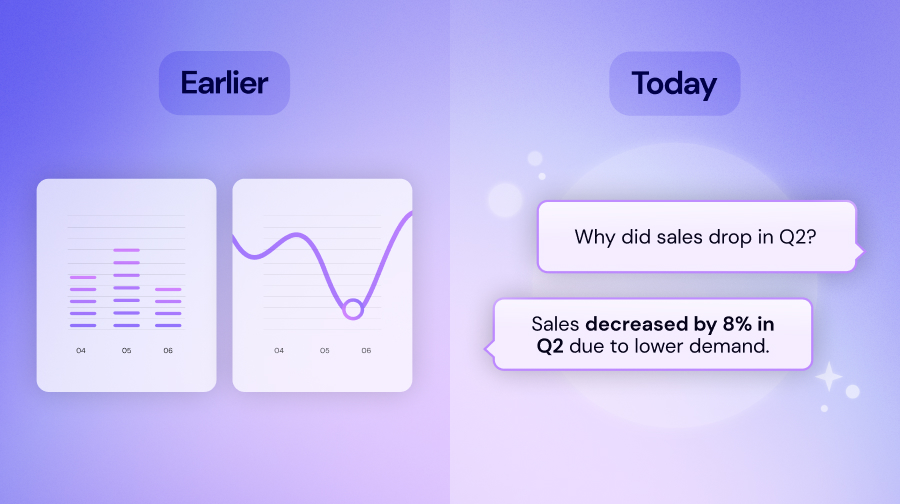With data in abundance and time at a premium, efficient access to the right information at the right time is one of the biggest challenges organizations nowadays face in the business environment. Traditional search methods are quite functional, and they fail in this. Basically, methods are based on keyword matching without taking any consideration of context or intent of the search query. That is where semantic search comes in, and it presents a new paradigm with interaction on how we interact with information.
What is semantic search?
Semantic search is a step further than keyword matching because it literally conceptualizes the word used in a query. In doing so, it combines the power of Natural Language Processing (NLP) and machine learning (ML) to demystify the real intention of the searching party, therefore making results much more relevant in context. If you query "how our sales performed last quarter," the semantic search engine knows you'd be referring to a sales report last quarter—not just mining documents for the occurrence of "sales" and "quarter."
This variant, therefore, helps users get to the information they require more timely, hence reducing the time spent just weeding out irrelevant results. Semantic search understands the relationships between concepts, synonyms, and even the subtleties of the human language, hence becoming a very powerful tool in today's data-driven world.
How does semantic search enhance productivity?
Accessing information faster than ever: Understanding the context and intent of what someone is looking for, semantic search can come back with highly relevant information at incredible speed. This reduces the time span for an employee to look out for documents, emails, or data, so they can focus on higher-order tasks.
Improved accuracy: Traditional search engines provide results for a wide array of topics, most of which may remain irrelevant to what one is looking for. However, semantic search narrows the relevant results down with improved accuracy and helps the user view the exact required information.
Better collaboration: With semantic search, knowledge located inside large organizations is frequently expressed across a number of departments and systems. This sharing and finding capability can greatly break down silos, improve cooperation in a group, and ensure the data in hand is the right data for the right time.
Scalability: As companies grow, the amount of data also grows. The semantic search engine should be able to scale alongside the company without undermining the efficiency of search when the volume of information grows. Such a scalability factor is essential to make sure that productivity is maintained in a quickly growing business environment.
Real-world semantic search applications
Customer Support: Companies utilize semantic search to enable customer support teams to quickly find the most relevant information functionally, solving issues with speed and agility, according to customer satisfaction.
Legal Domain: Legal professionals use semantic search in huge heaps of case law and legal documents to ensure that they secure the most relevant information at their disposal to build a case.
Healthcare: In the healthcare sector, semantic search helps secure access to records of patients, research papers, and treatment protocols so that healthcare facilities can come up with the right decisions quickly.
The future with semantic search in work
As it is integrated into business workflows, semantic search is advancing to an intelligent and efficient nature of workflows. Over time, as artificial intelligence gets more sophisticated, semantic search is refined and only gets more refined in how we interact with information.
Organizations that implement semantic search can be assured not only of an increase in productivity but also of a competitive edge within their specific industry. With employees able to access the correct information at the proper times, organizations can better streamline operations, reduce errors, and facilitate decision-making processes.
The future of work with Zive
Zive, our AI-based platform, is on the verge of the next knowledge management and productivity revolution. It helps increase work efficiency, and it makes sure employees obtain information they need at the right time in a smooth way. Zive allows an organization to work smart, not hard, by making technology like semantic search and generative AI available as a turnkey solution that can be implemented by companies in a matter of weeks.












.jpg)


